News
-
 Health & Medicine
Health & MedicineThe antidepressant fluvoxamine can keep COVID-19 patients out of the hospital
A 10-day course of fluvoxamine sharply reduced hospital visits and deaths, raising hopes for an easy at-home treatment for COVID-19.
-
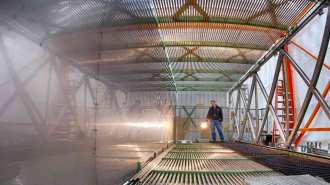 Particle Physics
Particle PhysicsDoubt cast on theorized ‘sterile’ particles leaves a neutrino mystery unsolved
MicroBooNE weakens the case for sterile neutrinos, but the mystery that shrouded earlier neutrino experiments remains.
-
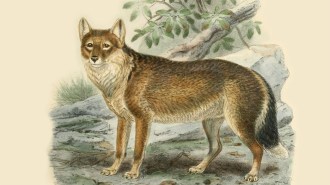 Humans
HumansAncient human visitors complicate the Falkland Islands wolf’s origin story
Scientists have debated how the Falkland Islands’ only land mammal journeyed to the region: by a long-ago land bridge or with people.
-
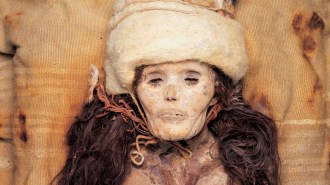 Genetics
GeneticsDNA from mysterious Asian mummies reveals their surprising ancestry
Ancient DNA indicates that an enigmatic Bronze Age group consisted of genetic, but not cultural, loners.
By Bruce Bower -
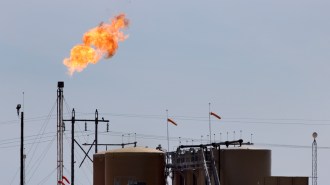 Climate
ClimateEarth will warm 2.7 degrees Celsius based on current pledges to cut emissions
The world still lags on its commitments to lower greenhouse gas emissions and forestall the worst effects of global warming, a new U.N. report shows.
-
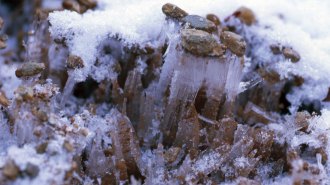 Earth
EarthHere’s how ice needles sculpt patterns into cold, rocky landscapes
Striking stone patterns decorate remote, frigid landscapes. The recipe for these naturally forming stripes and swirls: Freeze, thaw, repeat.
By Beth Geiger -
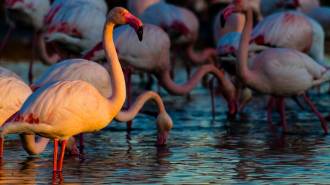 Animals
AnimalsFlamingos dye their sun-faded feathers to stay pretty in pink
During mating season, flamingos rub a makeup-like rouge on their necks to catch the eye of the opposite sex. They don’t bother once chicks are born.
-
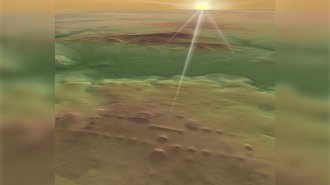 Archaeology
ArchaeologyLidar reveals a possible blueprint for many Olmec and Maya ceremonial sites
An Olmec site forged a building plan more than 3,000 years ago for widespread Olmec and Maya ritual centers across Mexico’s Gulf Coast.
By Bruce Bower -
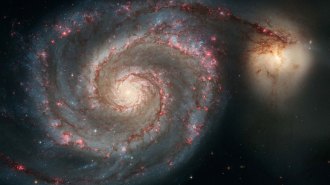 Astronomy
AstronomyAstronomers may have spotted the first known exoplanet in another galaxy
The spiral-shaped Whirlpool galaxy may be the host of the first planet spotted outside of the Milky Way.
-
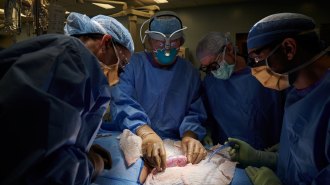 Health & Medicine
Health & MedicineWhat does the first successful test of a pig-to-human kidney transplant mean?
For the first time, a pig organ was successfully attached to a human patient. It’s a step toward vastly increasing the supply of organs.
-
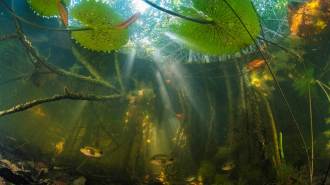 Life
LifeHow these sea-loving mangroves ended up far from the coast
On the Yucatán Peninsula, mangroves trapped nearly 200 kilometers from the ocean are part of a “relict ecosystem” that’s more than 100,000 years old.
-
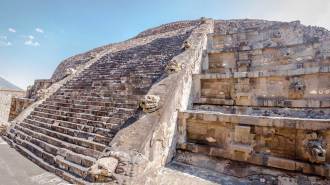 Anthropology
AnthropologyLasers reveal construction inspired by ancient Mexican pyramids in Maya ruins
Archaeologists have uncovered structures in Guatemala that are remarkably similar to La Ciudadela and its temple at the ancient city of Teotihuacan.